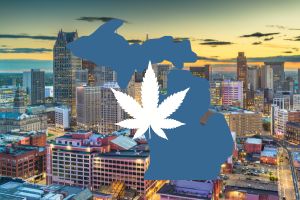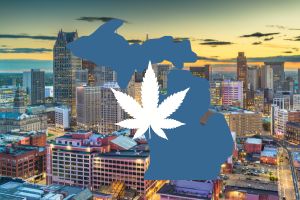Is Hemp Legal in Michigan?
Posted by Tweedle Farms on Mar 23rd 2022

Exploring the Legality of Hemp in Michigan: A Guide for Stakeholders and Consumers
Michigan's evolving stance on hemp and its derivatives, such as CBD flower, CBD oils, and CBD gummies, reflects a broader trend toward embracing the agricultural and commercial potential of this versatile plant. This article aims to demystify the legal framework surrounding hemp in Michigan, offering valuable insights for both industry stakeholders and consumers navigating this expanding market.
Michigan's Legislative Landscape for Hemp
The legalization of hemp in Michigan gained momentum with the 2018 Farm Bill, which federally recognized hemp as distinct from marijuana, characterized by a THC concentration of 0.3% or less. Building on this, Michigan enacted its own legislation to regulate hemp cultivation and processing, aligning with federal guidelines and fostering an environment conducive to the growth of the hemp industry.
Understanding Hemp, CBD Flower, CBG Flower, and THCA Flower in Michigan
In Michigan's legal context, it's essential to differentiate between various forms of hemp:
• Hemp Flower: The floral part of the hemp plant, legally defined by its THC content not exceeding 0.3%, and largely used for extraction, and subsequent product formulation.
• CBD Flower: A type of hemp flower bred for high levels of cannabidiol (CBD) and used by consumers as an inhalable product.
• CBG Flower: Hemp flower bred for its high concentration of cannabigerol (CBG). Also used as an inhalable product.
• THCA Flower: Contains tetrahydrocannabinolic acid, a non-psychoactive precursor to THC that converts into THC when burned. This is a marketing distinction used to sell THC-rich flower in the less-regulated hemp market.
Navigating Regulatory Waters: Michigan's Approach to Hemp
The Michigan Department of Agriculture and Rural Development (MDARD) oversees the state's Industrial Hemp Ag-Pilot Program, guiding the cultivation, processing, and sale of hemp within the state. This regulatory framework ensures that hemp products meet legal standards, emphasizing the importance of THC testing and quality control to maintain industry integrity and consumer trust.
The Industry Perspective: Opportunities and Challenges in Michigan's Hemp Sector
For entrepreneurs and farmers in Michigan, the hemp industry presents a landscape filled with both promise and pitfalls. The legal establishment of hemp opens doors to innovation, job creation, and economic diversification. However, navigating regulatory requirements, establishing market presence, and ensuring product quality are critical challenges that stakeholders must address to capitalize on these opportunities.
Consumer Considerations: Access and Informed Decision-Making in Michigan
The legal status of hemp in Michigan has broadened consumer access to a wide array of hemp-derived products. From hemp flower and pre rolls, to gummies and vapes, hemp-derived products are widely available throughout the state. This increased availability underscores the need for consumer education on product quality, legal compliance, and the therapeutic potential of hemp-derived CBD, enabling informed decisions in a rapidly expanding market.
Addressing Industry Hurdles: A Path Forward for Michigan's Hemp Market
Michigan's hemp industry, while promising, faces obstacles such as regulatory flux, market competition, and the need for ongoing research into hemp cultivation and product development. Overcoming these challenges will require a collaborative effort among industry players, regulatory bodies, and educational institutions to foster a resilient and sustainable hemp sector.
Future Trajectories: Legislative and Market Evolution in Michigan's Hemp Landscape
As Michigan's hemp industry matures, stakeholders can expect evolving regulations, shifting market dynamics, and changing consumer preferences. Keeping abreast of these developments and actively engaging in policy discussions will be crucial for businesses and consumers alike, ensuring the continued growth and viability of the hemp industry in Michigan.
Conclusion: Cultivating Success in Michigan's Hemp Industry
Michigan's journey with hemp legalization marks a significant step toward recognizing the plant's economic, agricultural, and therapeutic potential. For industry stakeholders, a deep understanding of the regulatory landscape and market opportunities is essential. For consumers, informed engagement with hemp-derived products is key to navigating this diverse market. Together, the collaborative efforts of all parties involved will shape the future of hemp in Michigan, driving innovation and prosperity in this green frontier.



